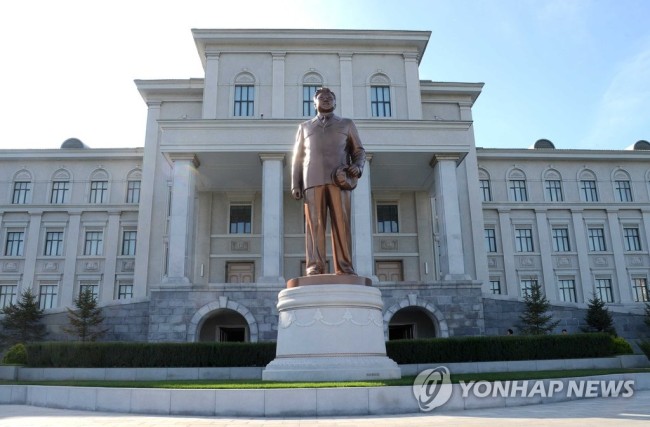Kim Il Sung University, North Korea's most prestigious seat of higher learning, plans to open its doors wider to foreign students by expanding major studies available for them, a pro-Pyongyang newspaper published in Japan said Saturday.
According to the Choson Sinbo, international students will be allowed to major in various economics and social science studies, including philosophy, law and history, in addition to literature, at Kim Il Sung University, starting next year.

(Yonhap)
At present, about 100 students from 33 countries, including China, Russia, Vietnam, France, Mongolia and Britain, are enrolled in the Pyongyang university but their major studies are restricted to the Korean language.
The Choson Sinbo, a newspaper of Chongryon, a Tokyo-based organization of pro-Pyongyang Korean residents in Japan, noted that foreign students are currently allowed to study the Korean language at Kim Il Sung University for four years, if they pass its entrance exam after completing a one-year preliminary course at Kim Hyong Jik University of Education.
Kim Il Sung University, named after the North's founder, was established in October 1946 and began to admit international students in 1954, one year after the end of the Korean War. Kim Hyong Jik University of Education was named after the father of the North's founder.
"Foreign students who finish the four-year undergraduate studies at Kim Il Sung University can also earn degrees after completing a two-year master's course and a three-year doctor's course. The university also offers a correspondence doctor's course for professors at its foreign partner schools," said the newspaper.
International students now attend classes at Kim Il Sung University's new campus building built on Pyongyang's Ryomyong Street in April this year and the university dedicated a 12-story dormitory for foreign students in the same district in August last year.
The foreign students usually attend lectures on the Korean language, Korean history and North Korean society in the morning and visit museums and exhibition halls in the afternoon, the paper added. (Yonhap)






![[KH Explains] Hyundai's full hybrid edge to pay off amid slow transition to pure EVs](http://res.heraldm.com/phpwas/restmb_idxmake.php?idx=645&simg=/content/image/2024/04/18/20240418050645_0.jpg&u=20240419100350)